Trinity Laban in India: Empowering Music Education with International Academies
Discover how Trinity Laban’s International Academies programme is advancing music education in India through masterclasses, mentorship, and performance opportunities with world-class faculty.
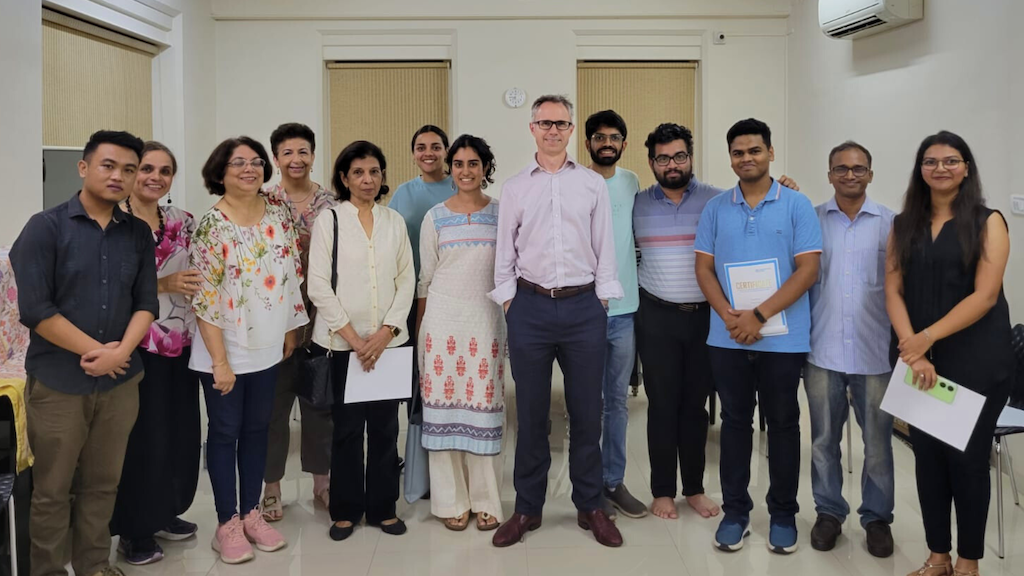
Trinity Laban has long been at the forefront of music education in the UK, its roots extending back to the 1870s. Today, this illustrious institution, now offering musical theatre, dance and music, continues its historic connections in India through its International Academies programme. By nurturing talent and supporting music educators across the country, Trinity Laban is not only enhancing technical proficiency but also inspiring a creative and holistic approach to music-making. With over 1200 students from more than 60 countries, the conservatoire’s unique blend of tradition and innovation is now making its mark on the Indian music scene.
In this article, we explore the many facets of Trinity Laban’s engagement with India, integrating insights from six of its leading faculty members. Their voices—Tim Palmer, Nic Pendlebury, Janet Munro, Gabriele Baldocci, Sergio De Simone, and Douglas Finch—offer an in-depth perspective on what makes Trinity Laban’s approach so distinctive and how their international experience enriches the learning environment for young Indian musicians.
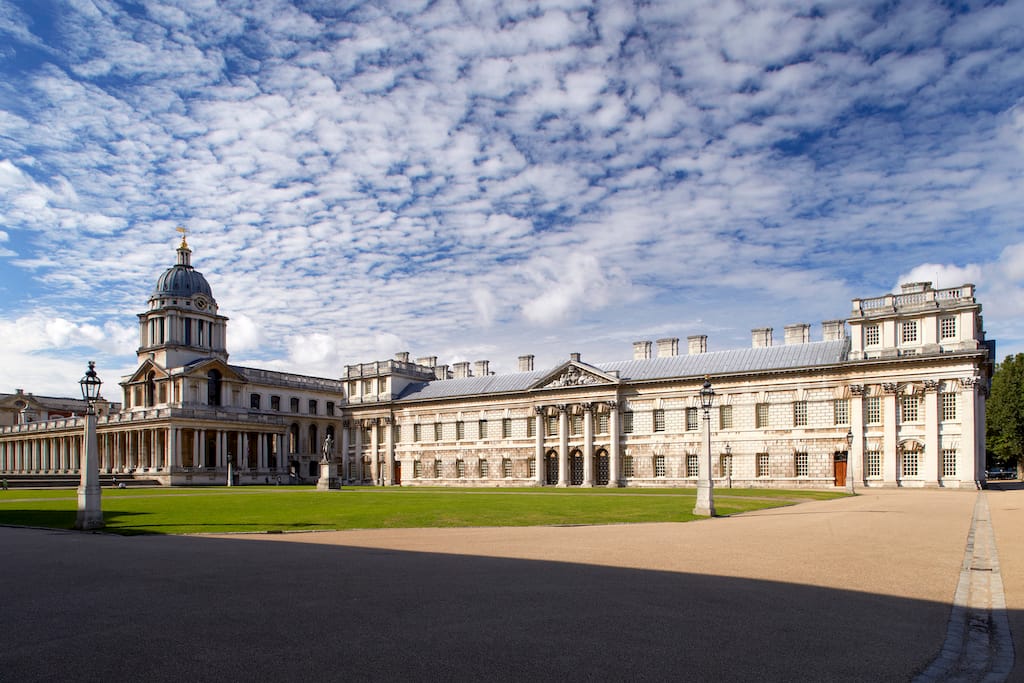
“Excellence Beyond Tradition”: A Holistic Vision for Music Education
At the heart of Trinity Laban’s philosophy is a commitment to nurturing not only technical skill but also artistic expression, with an approach described as uniquely holistic. Tim Palmer, a highly experienced performer and educator, is Head of Music Education and leads the International Academies programme. He encapsulates the institution’s ethos with his candid observation:
“Trinity Laban has a different approach to training musicians than any other UK institution.”
For Palmer, the difference lies in the integrated training model that goes beyond technique to include aural skills, interpretative freedom, and even improvisational techniques. He explains, “In my experience, Trinity Laban particularly focusses on using music as a language of instruction, developing inter-related sets of skills that work harmoniously whether as a soloist, in chamber music or a large ensemble, playing traditional or contemporary music, accompanying dance, or in education and community settings’. This comprehensive strategy ensures that Trinity Laban’s teachers can instil in students not just performance excellence but also the ability to convey emotion and meaning through music.
Palmer also highlights the challenges faced by Indian musicians:
“For many talented young musicians that I meet in India, one challenge is finding teachers who can bring them up through the higher grades and into diploma level and perhaps a conservatoire in the West.”
This observation underscores the importance of the International Academies programme, which bridges the gap between local training and international standards. By providing masterclasses, mentorship, and performance opportunities, Trinity Laban is empowering Indian students to pursue excellence and to step confidently onto the global stage. The programme has already had significant success in developing competition winners and scholarship holders for UK study.
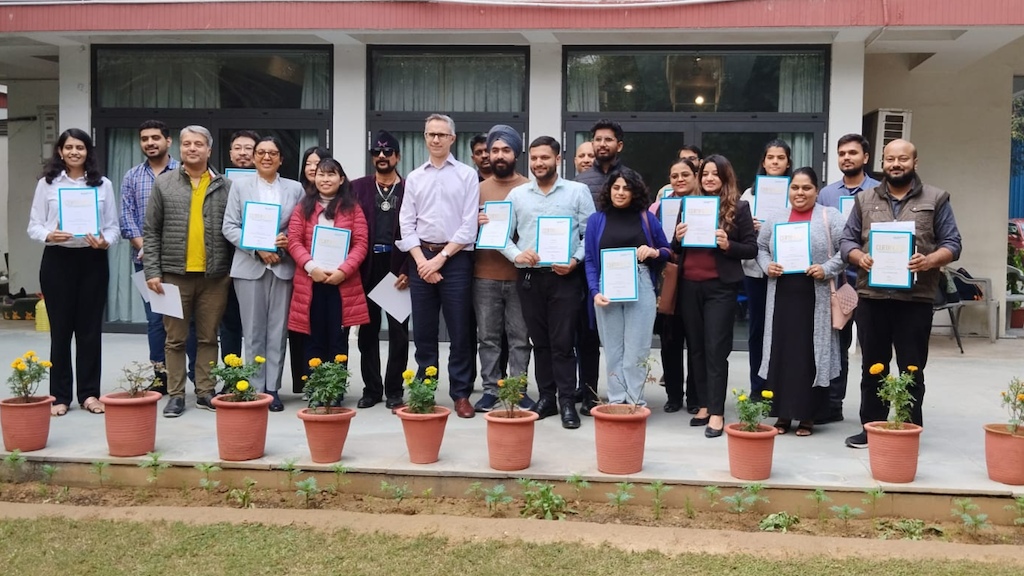
Diverse Expertise: The Faculty Behind the Transformation
The conservatoire’s faculty members are not only educators but also accomplished performers and innovators whose diverse backgrounds fuel a dynamic learning environment. This article explores the views and backgrounds of those staff who regularly teach on the International Academies programme.
Cultivating Strings with Passion and Precision
Professor Nic Pendlebury, Head of Strings, leads one of the most vibrant strings departments in Europe. “Trinity Laban is extraordinarily fortunate to have such a wonderful diverse strings teaching staff,” he remarks, emphasising that his colleagues come from varied backgrounds—ranging from soloists and chamber musicians to orchestral leaders.
Pendlebury’s department offers a rich curriculum that includes weekly classes on scales, sight-reading, and audition techniques, alongside practical experiences like orchestral projects and chamber music collaborations. “The main thing we are looking for is potential and musicians who have something to say with their playing,” he adds. This philosophy is evident in the structure of the programme, where students are encouraged to explore and develop their unique musical voices rather than simply emulating past masters.
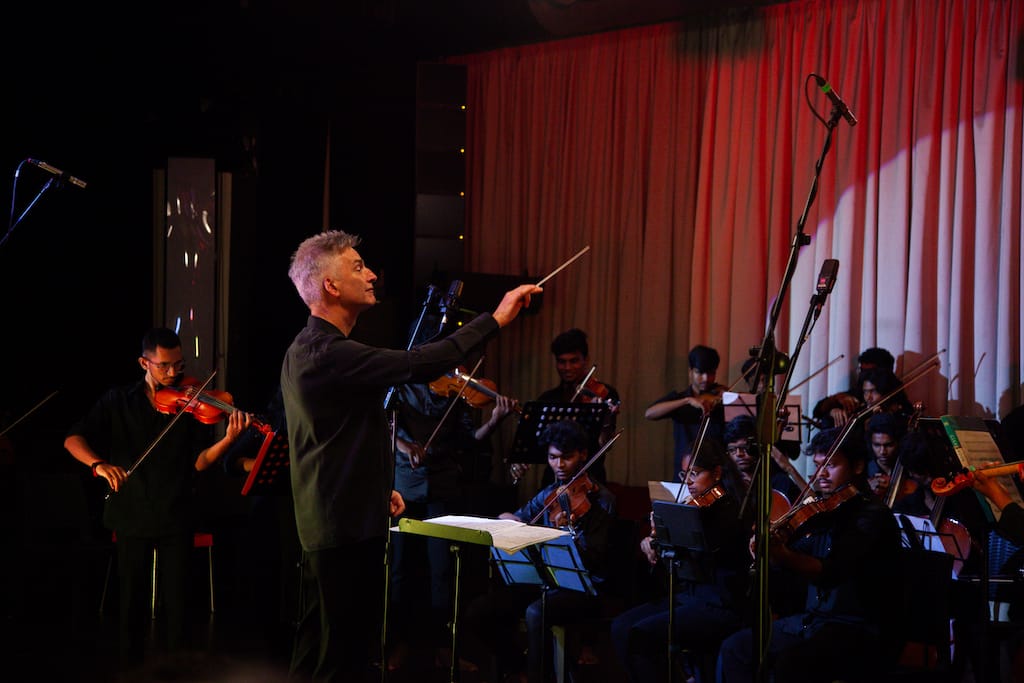
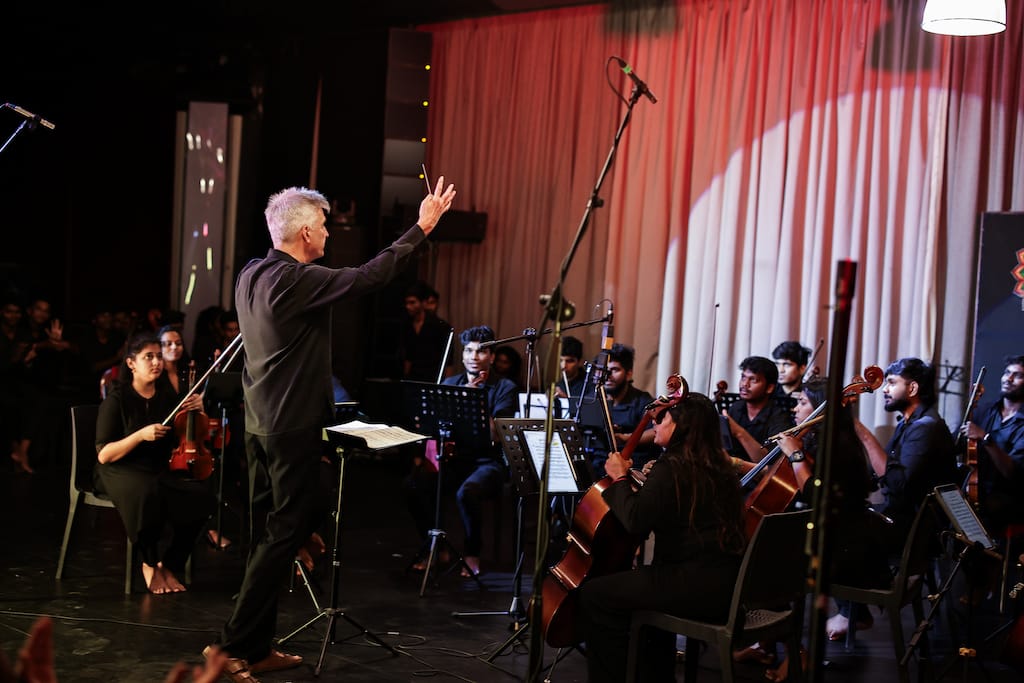
Nic Pendlebury conducts the Sunshine Orchestra
He further explains that the conservatoire’s commitment to collaborative projects, such as the CoLab festival, helps students engage with diverse musical genres and performance styles. “CoLab gives students that safe space to experiment, whether it’s with dancers, jazz musicians, or even our popular music cohort,” says Pendlebury. By fostering an environment where creativity and technical precision go hand in hand, Trinity Laban prepares its strings students not only to excel in traditional settings but also to innovate and adapt in today’s evolving musical landscape.
Expanding Artistic Horizons on the Piano
Gabriele Baldocci, an internationally acclaimed pianist and composer, is known for his versatility and genre-defying approach to performance. His teaching style mirrors his own artistic journey, which seamlessly blends classical tradition with modern experimentation. “My approach to teaching reflects my own artistic journey, one that embraces tradition while continuously seeking new avenues of expression,” Baldocci explains. This philosophy is a cornerstone of his work at Trinity Laban, where he encourages students to go beyond conventional boundaries.
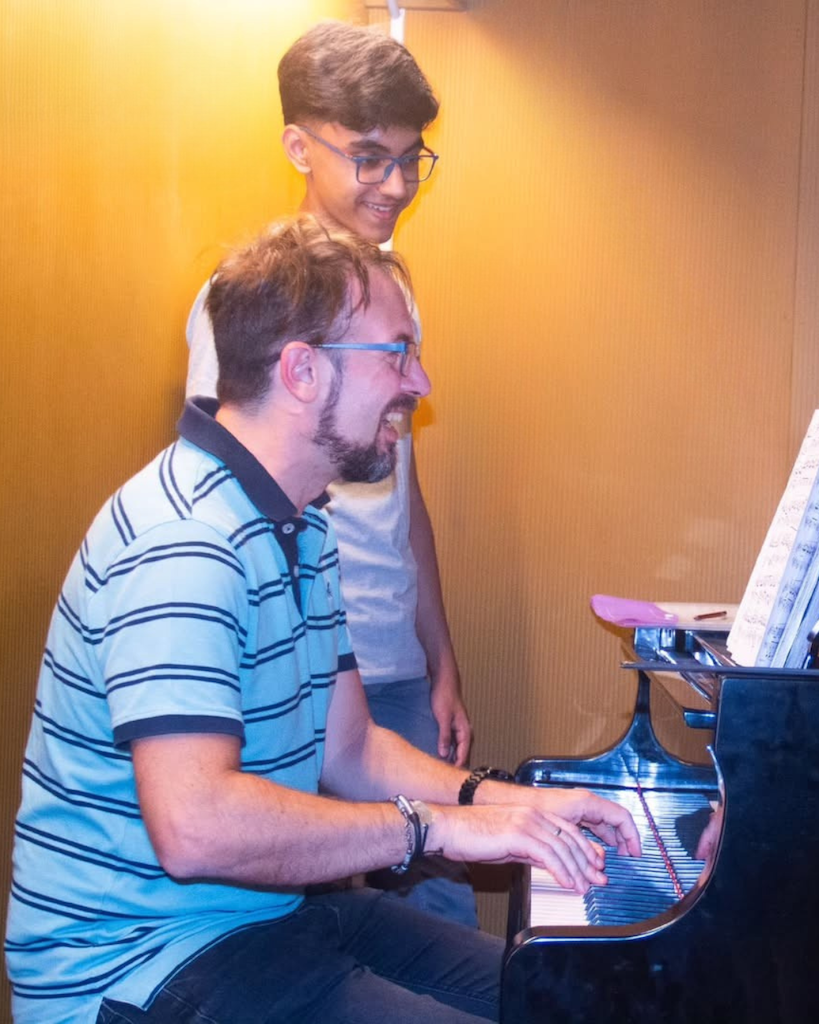
Baldocci is a fervent advocate for the idea that technical mastery is only the starting point of musical expression. “Virtuosity should never be an end in itself but rather a tool for uninhibited artistic expression,” he insists. By incorporating elements of jazz, progressive rock, and contemporary experimental music into his lessons, he exposes students to a broader artistic palette. This approach not only enriches their technical skills but also cultivates an ability to reinterpret and innovate upon the classical repertoire.
He further challenges his students to think deeply about the music they perform:
“I encourage students to develop technical mastery and stylistic awareness while also challenging them to think beyond conventional boundaries.”
Through his masterclasses and individual lessons, Baldocci demonstrates that creativity and technical proficiency are intertwined, ensuring that students emerge as well-rounded, expressive musicians ready for the complexities of today’s performance world.
Inspiring Global Perspectives through International Experience
Sergio de Simone, a seasoned pianist and artistic director, brings a wealth of international experience to Trinity Laban. With teaching stints across Europe and the USA, de Simone’s global perspective enriches his approach to music education. “Being able to teach at different levels and in different institutions has enriched my experience as an educator, opening me to new and different approaches,” he observes. His diverse background allows him to blend his traditional Italian heritage with innovative strategies gleaned from his travels.
De Simone’s work with the International Academies programme in India has been particularly impactful. “Coming to India has been a very inspiring experience for me,” he recalls, noting that the genuine interest and rapid progress of Indian students have left a lasting impression. He admires the directness of Indian students who, he says, are “more open and without superstructure,” allowing them to absorb new ideas and techniques quickly.
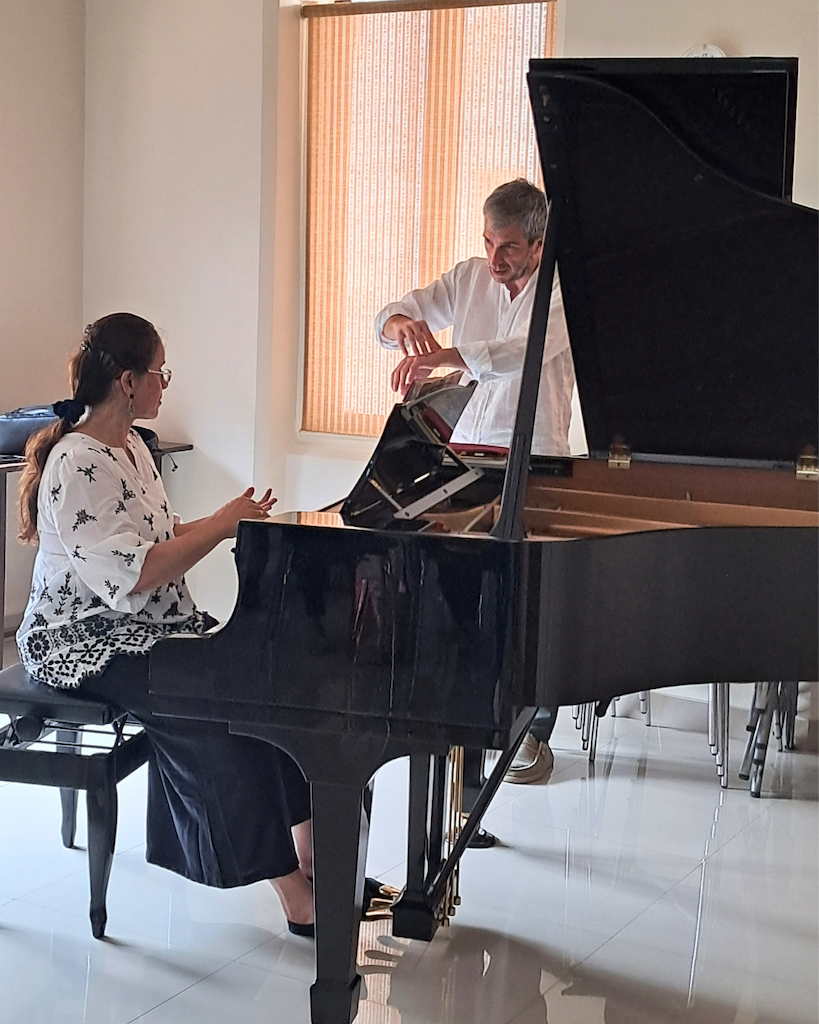
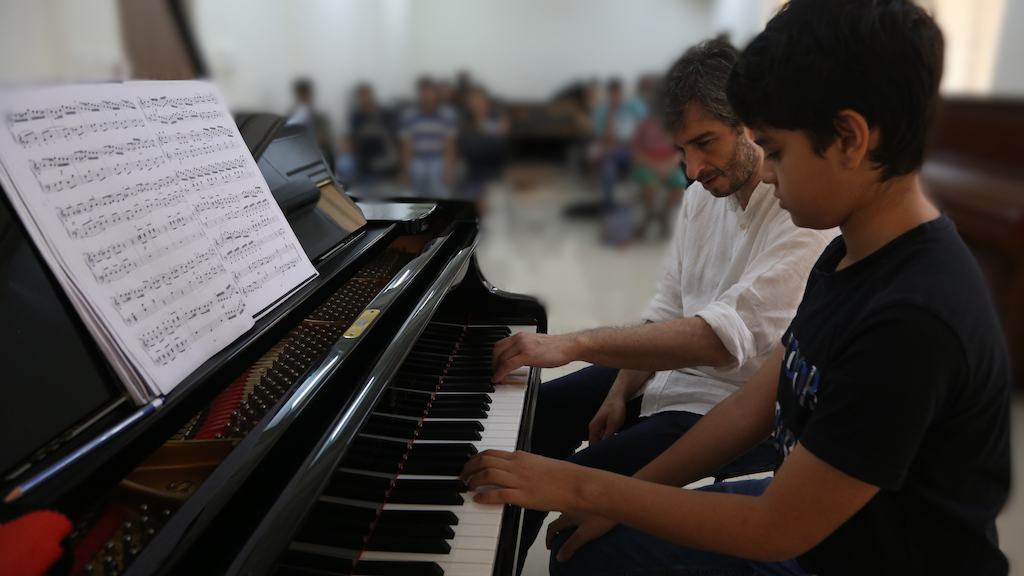
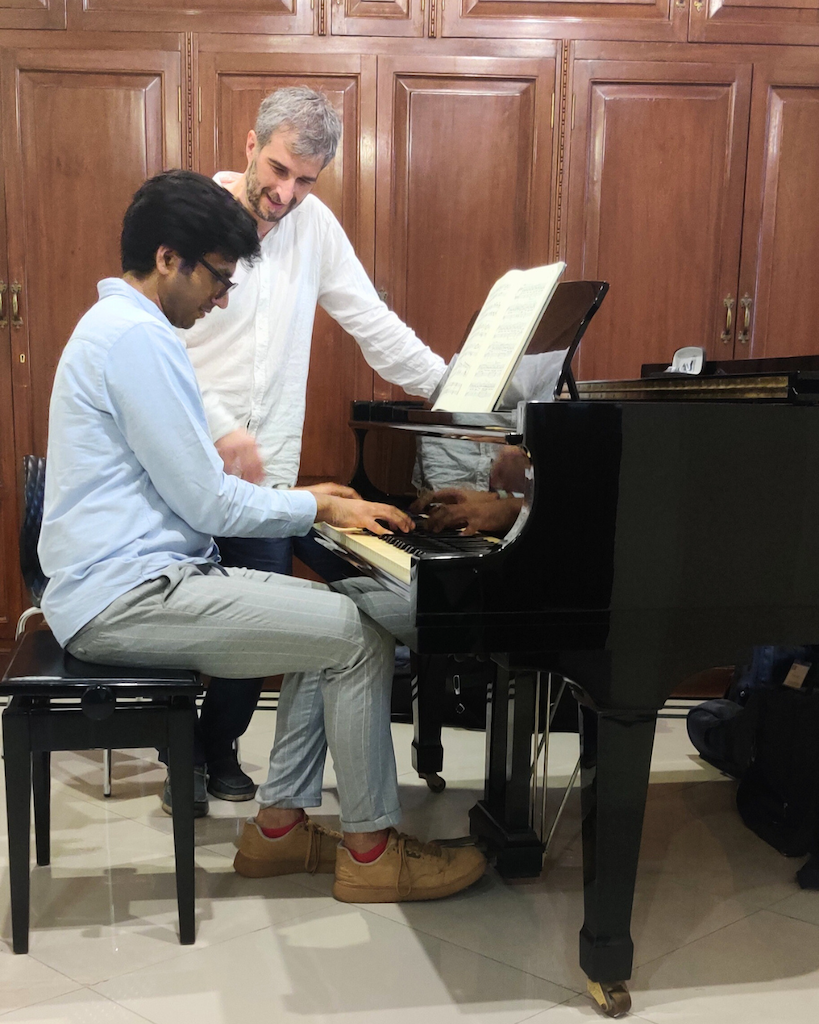
Sergio de Simone conducts workshops in Mumbai
Moreover, De Simone stresses the importance of self-awareness in artistic development. He believes that understanding one’s own strengths and limitations is crucial to growth as a musician. “I strongly believe that Trinity Laban is a perfect place to discover and enhance the peculiarities of a young musician,” he remarks, emphasising the conservatoire’s supportive and exploratory environment. His insights not only inspire students to push their boundaries but also reinforce the idea that music education is as much about personal discovery as it is about technical perfection.
Bridging Composition and Performance
Douglas Finch, a professor of piano and composition at Trinity Laban, exemplifies the integration of creative and analytical musical approaches. With a career that spans composition, performance, and film scoring, Finch’s multi-faceted expertise is a vital asset to the conservatoire. “For me, composing and performing are closely linked,” he explains, suggesting that the interplay between the two disciplines is essential for true musical expression. This philosophy encourages his students to view music not as a static discipline but as a dynamic form of storytelling.
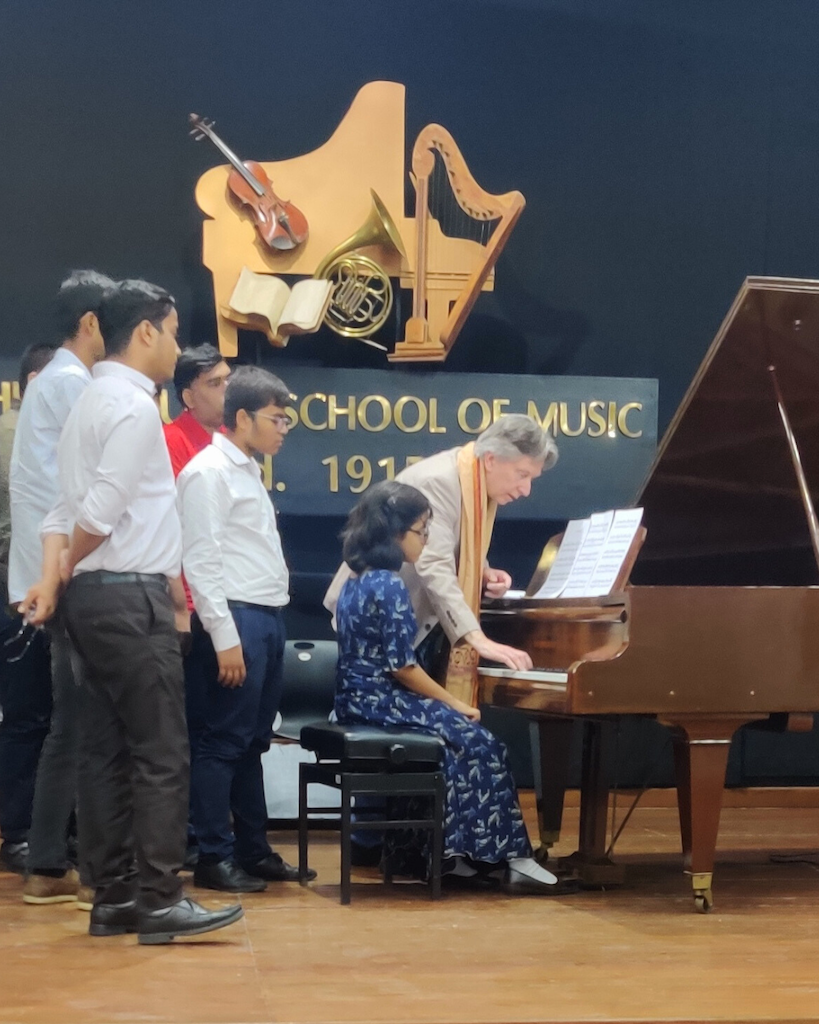
Finch is known for his emphasis on creative exploration within a structured academic setting. “Aim every day to become the most knowledgeable, curious, skilful, open-minded and questioning musician that you can possibly be,” he advises his students. His approach challenges them to dig deeper into the pieces they perform, to understand not only the notes on the page but also the underlying emotions and ideas. “We need to bring our own voice to it for the music to come alive,” he insists, urging students to reinterpret the score and make it their own.
In his International Academies classes, Finch integrates composition and improvisation alongside performance, guiding students to explore the origins of musical ideas and to experiment with different interpretations. This method not only enhances technical skills but also fosters an environment where students can innovate and experiment. His commitment to creativity ensures that the next generation of musicians is well-equipped to navigate the evolving demands of the musical world.
Empowering Indian Musicians Through the International Academies Programme
Trinity Laban’s International Academies programme in India is a multi-pronged initiative designed to transform aspiring musicians into globally competitive artists. Since its inception in 2013, the programme has focused on two parallel missions: supporting the existing Western classical music ecosystem in India and providing Indian students with access to higher education in the arts.
Masterclasses, Lessons and Recitals
One of the core elements of the programme is a series of annual masterclasses and lessons delivered by Trinity Laban’s world-class faculty. These sessions cover a broad range of disciplines—from piano and strings to vocal music, theory and composition. Faculty members bring their extensive international experience to these masterclasses, providing Indian students with insights that are rarely available locally, and helping them learn together as a community.
Baldocci’s sessions, for instance, are not just about refining technique; they are about exploring new artistic territories. As he puts it, “I encourage students to think beyond conventional boundaries, to experiment and discover new ways of expressing themselves.” Such an approach has resonated deeply with students, many of whom have remarked on the refreshing mix of tradition and innovation in his teaching.
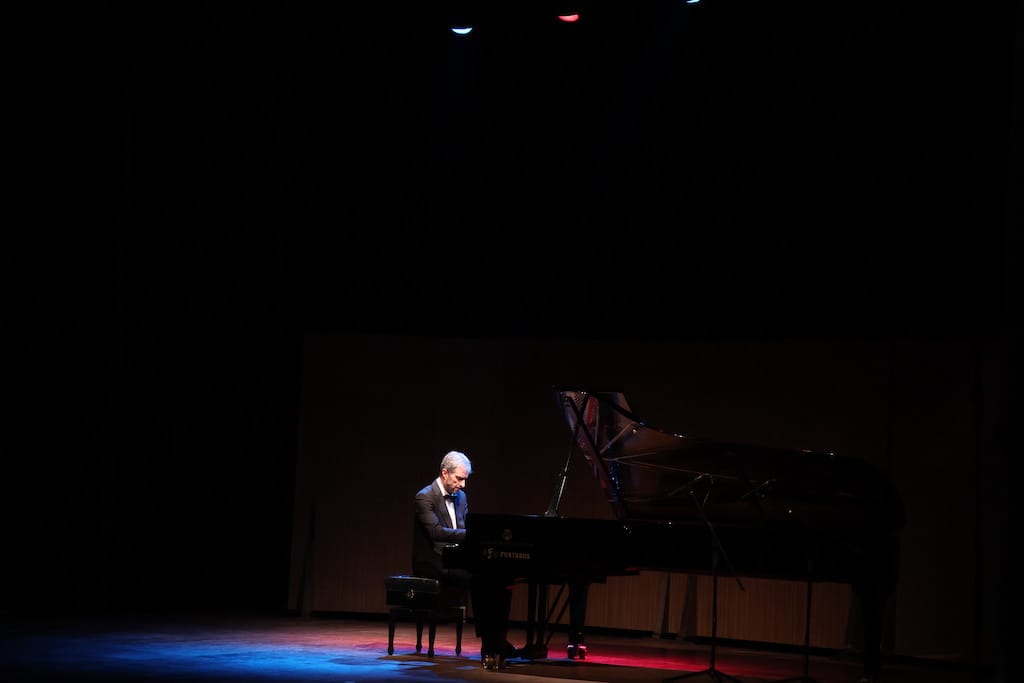
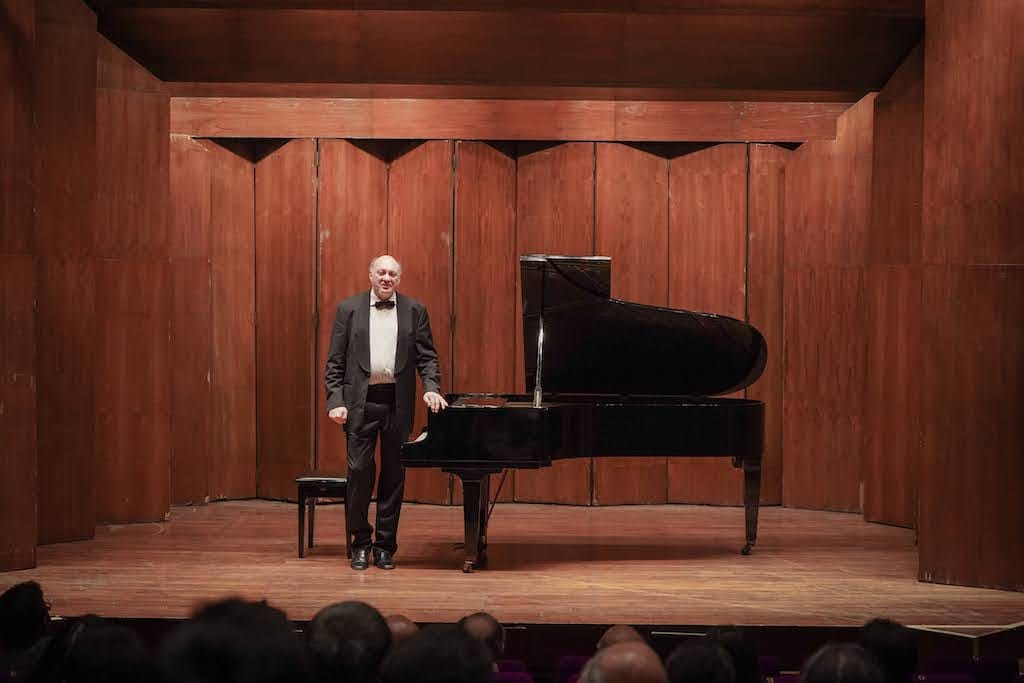
Left: Sergio De Simone at the Royal Opera House, Mumbai; Right: Mikhail Kazakevich at the NCPA
Alongside the masterclasses and lessons is a dynamic recital series, allowing audiences to experience up close the astounding musicianship of Trinity Laban staff. Recitals by Gabriele Baldocci and Mikhail Kazakevich have covered canonic and modern repertoire, whilst those by Douglas Finch often integrate his own compositions and live improvisations. Indeed, Douglas frequently delights audience members by asking them to propose a theme for him to improvise on. Sergio de Simone last year gave a landmark sold-out recital in Mumbai’s Royal Opera House, and is planning a performance at Mumbai’s NMACC later this year.
Teacher Development and Mentorship
Similarly, Tim Palmer’s teacher development masterclasses are celebrated for their holistic focus. He frequently reminds the music teachers he works with that while technical skills are essential, they must also develop a robust understanding of music history and theory. “There is rarely one way to play a piece,” he asserts, emphasising the need for interpretative fluidity. Palmer’s approach helps Indian music teachers to appreciate the importance of positioning technical skills within a mix of aural, analytical and creative skills, and to always focus on the potential for teaching through music as the primary language in the classroom.
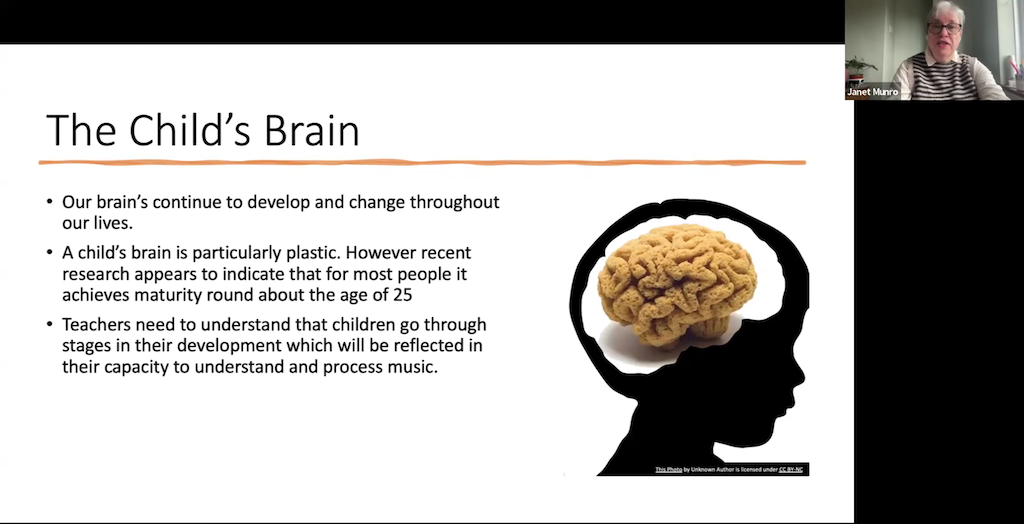
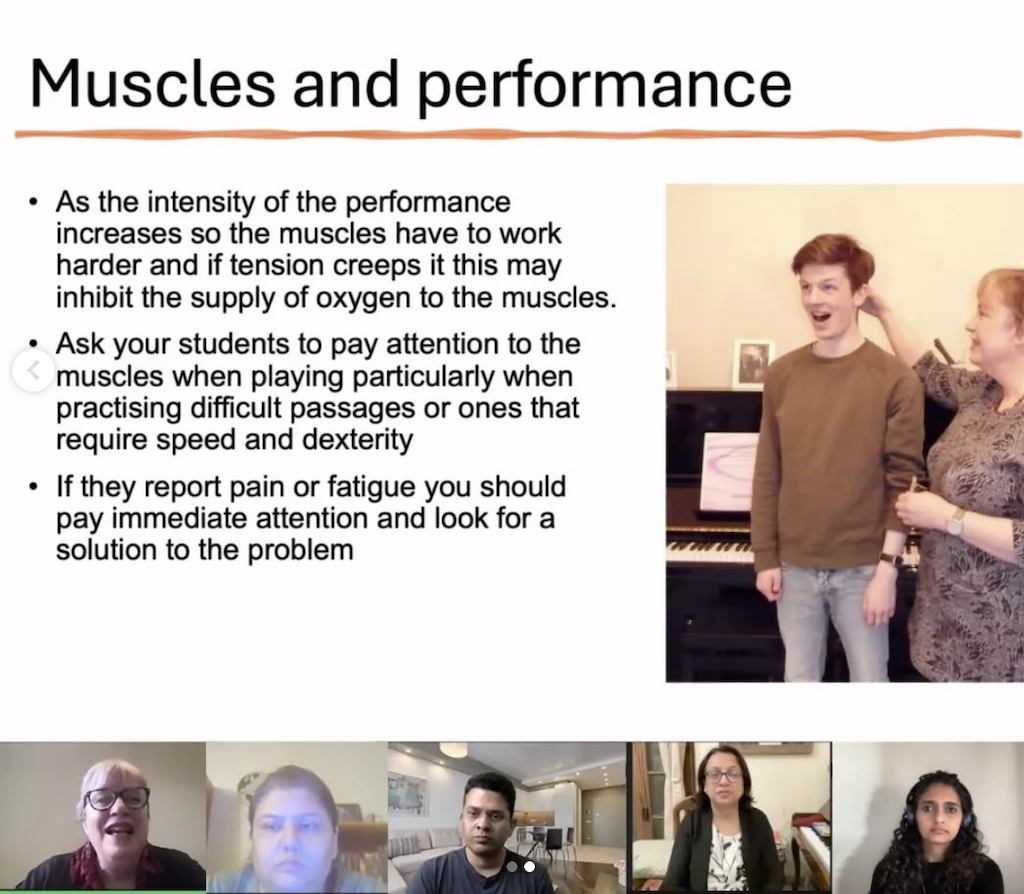
Janet Munro leading virtual teacher development workshops
Recognising that the future of music education depends on skilled teachers, Trinity Laban places a strong emphasis on teacher development. Tim Palmer leads initiatives that bring together educators from across India to share innovative practices and the latest research in music education. In his words, “It is vital that any teacher education programme speaks to the diverse international viewpoints our students bring with them.” These sessions help local teachers update their methodologies, ensuring that the quality of music education in India continues to rise. Palmer’s work in India is complimented by that of Trinity Laban music education academic and singing teacher Janet Munro, who runs a series of online seminars for Indian music teachers. About them, Munro states “It is a great opportunity for teachers in India to reflect on their teaching practice and share ideas with other professional educators”.
In a further strand, the programme features a dedicated mentorship scheme that pairs outstanding young musicians with Trinity Laban tutors for online support throughout the year. This initiative has proven transformative, providing students with ongoing support and the chance to develop personally and artistically. Palmer reflects on the impact of the mentorship, stating,
“Through our mentoring programme, we provide a step up for those determined to develop as outstanding artists.”
This personal guidance not only accelerates skill development but also builds lasting relationships between mentors and mentees.
Audition Preparation and Financial Support
For many Indian musicians, the prospect of studying at an international conservatoire can be daunting. To demystify this process, Trinity Laban offers an audition preparation project where students perform a trial piece and undergo a mock interview. As Palmer advises prospective students, “You have to have something to communicate through the music—technical excellence alone is not enough.” By offering detailed feedback from experts, the programme equips students with the clarity and confidence needed to succeed in highly competitive auditions.
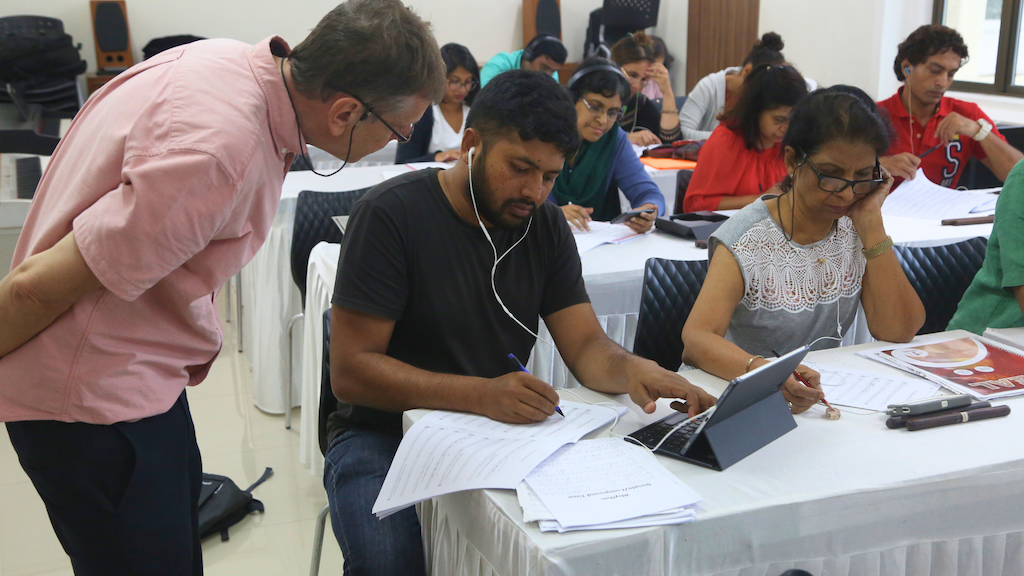
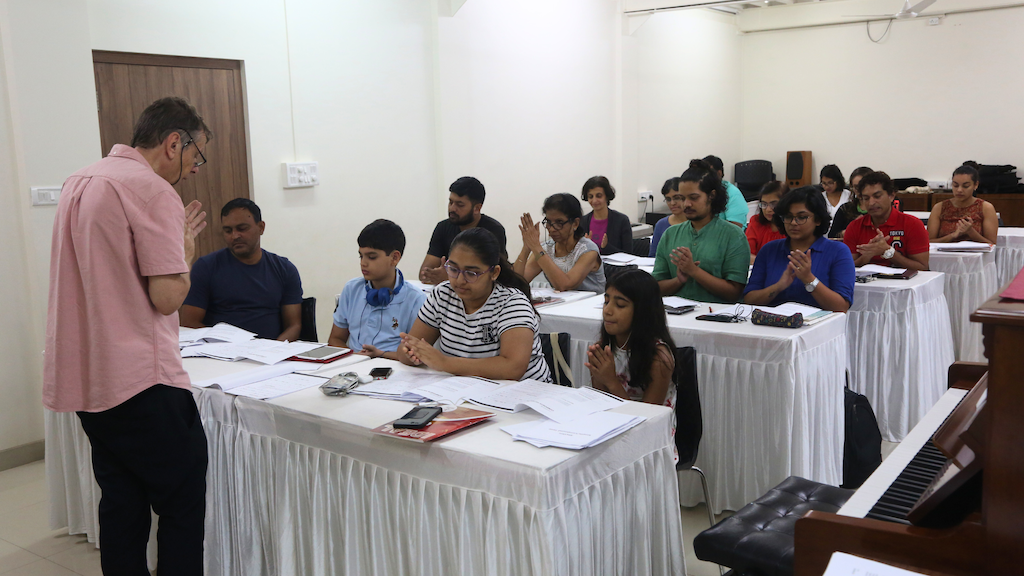
Christopher Caine conducts a theory masterclass in Mumbai
Financial support is another critical pillar of the programme. More than half of the Indian students who enrol in Trinity Laban’s degree programmes receive scholarships, facilitated through partnerships with organisations such as the British Council. The institution also has a ground-breaking collaboration with KM Music Conservatory, supporting the Sunshine Orchestra charity and offering their students the chance to complete their undergraduate studies at Trinity Laban. This pathway not only enhances academic prospects but also further integrates the global musical community.
Experiencing London: A Cultural Immersion
A key aspect of Trinity Laban’s appeal is its location in London—a global cultural hub that offers endless opportunities for artistic enrichment. Faculty members, including Nic Pendlebury, underscore the significance of studying in a city that is “one of, if not the cultural centre of the world.” London’s orchestras, opera houses, theatres, and galleries provide a dynamic backdrop against which students can hone their craft.
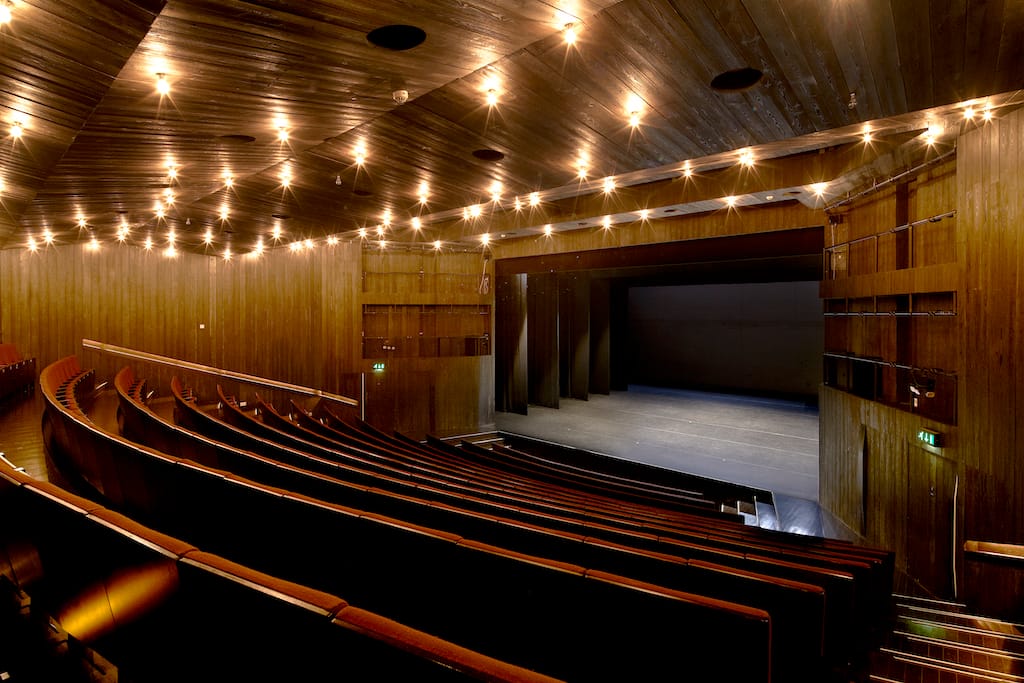
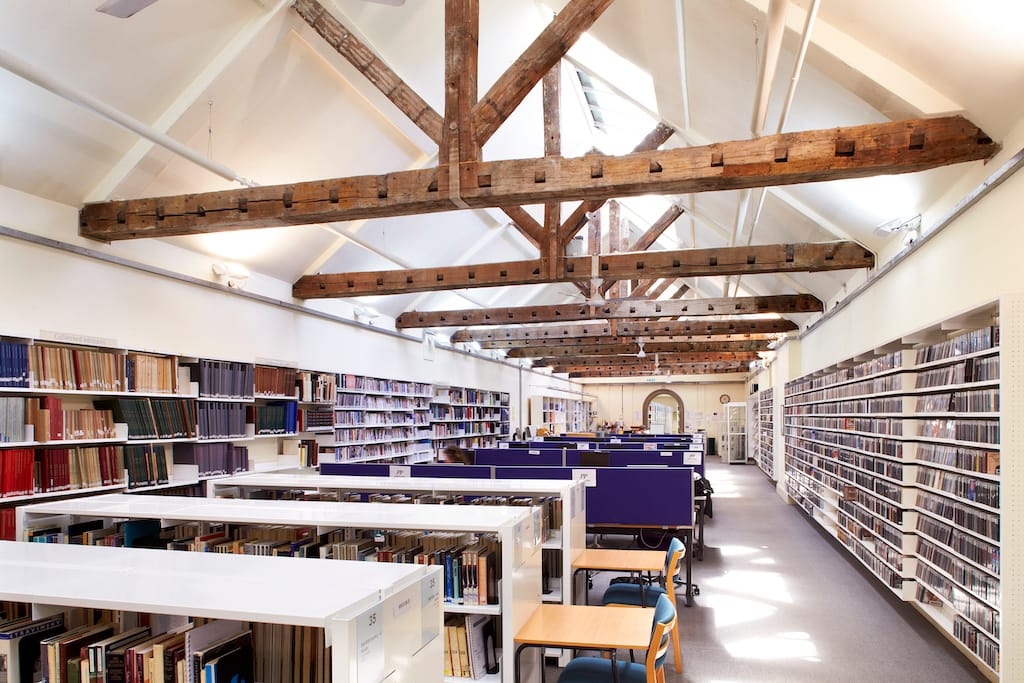
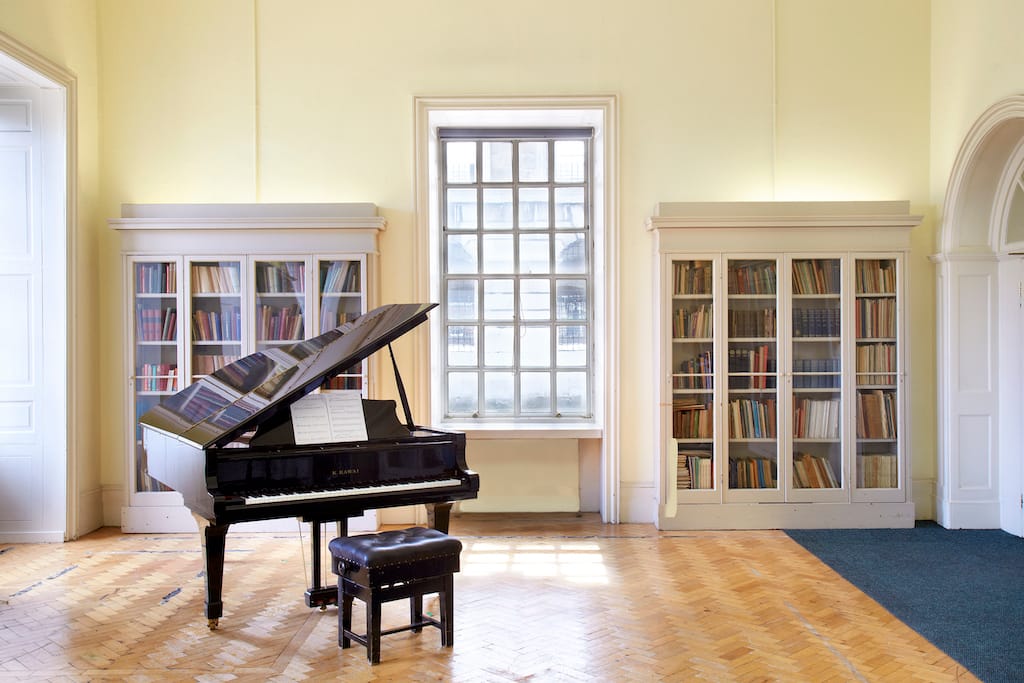
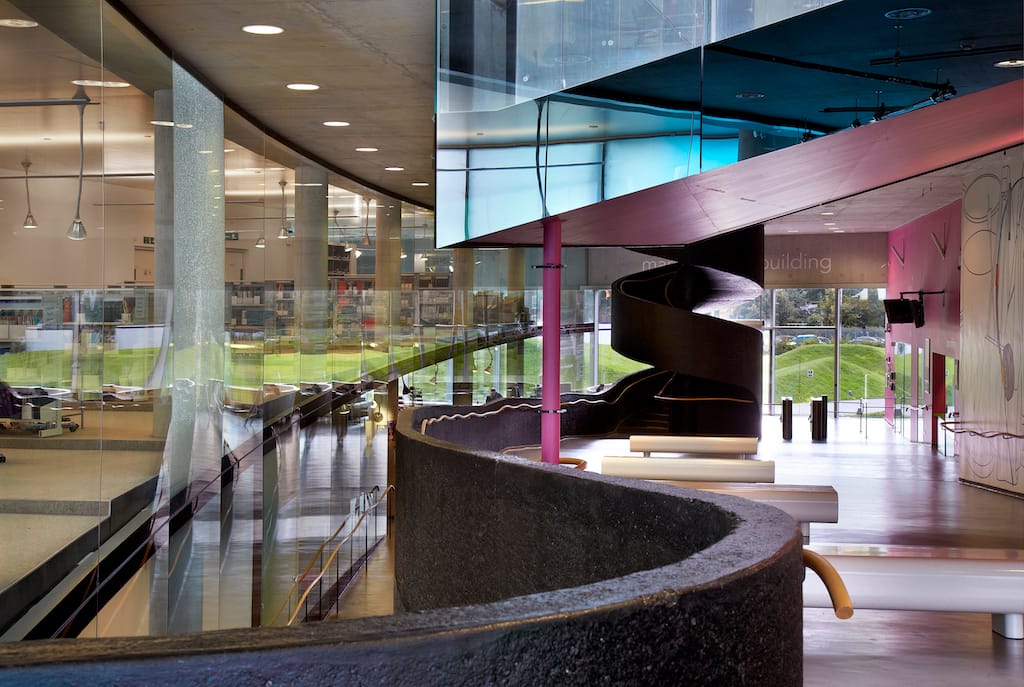
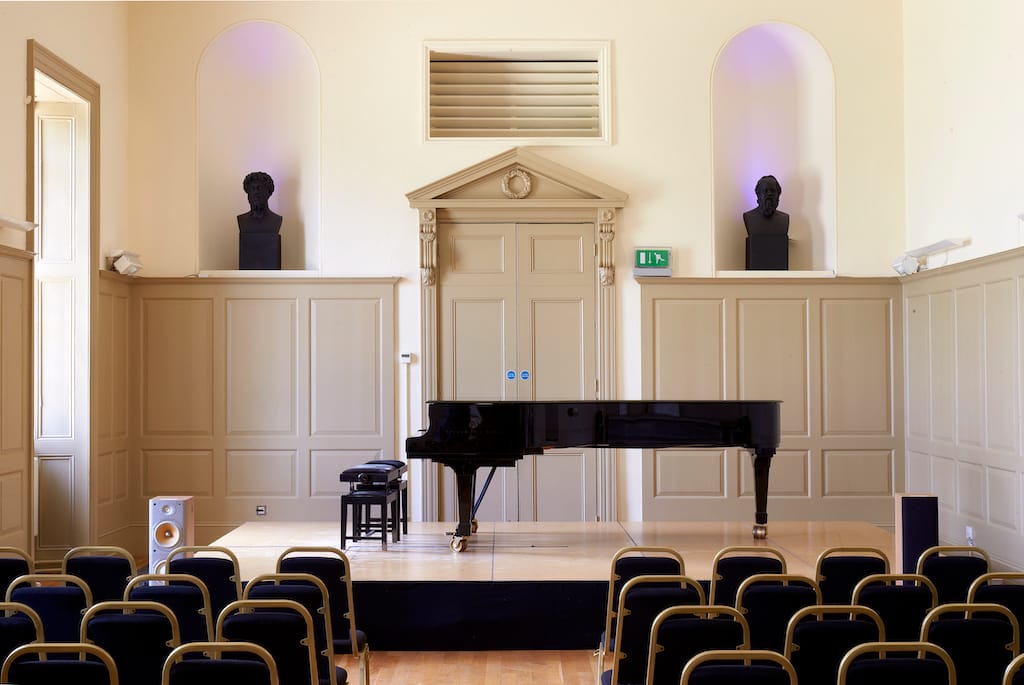
Trinity Laban Campus, London
Pendlebury elaborates on this point, stating, “Immersing yourself in London’s cultural events does not have to break the bank, as many venues offer free entry or reduced prices for students.” The exposure to a myriad of performance opportunities, coupled with access to leading artists and industry connections, means that students are not just learning music—they are living it in a city pulsing with creativity and history.
Shaping the Future of Indian Music Education
The legacy of Trinity Laban’s International Academies programme in India is far-reaching, with a cohort of highly trained Indian musicians working in India or internationally. Faculty members consistently observe that the exposure to world-class teaching and performance opportunities catalyses significant personal and professional growth in their participants.
Sergio De Simone’s experience in India reflects this sentiment. He recalls the energy and dedication of participants, noting, “the interest of students towards western classical music is genuine.” This enthusiasm, combined with the opportunity to learn from globally recognised educators, creates a fertile environment for artistic development. De Simone adds,
“I have seen a remarkable improvement in just a few days of teaching, and the fact that many students return year after year speaks volumes about the programme’s success.”
The collective insights of Trinity Laban’s faculty underscore a shared vision for the International Academies programme: to cultivate a generation of Indian musicians who are as imaginative as they are accomplished, capable of both preserving the rich heritage of Western classical music and propelling it into new, exciting directions. Whether it is through rigorous masterclasses and lessons, innovative teacher development, a dynamic recital series, audition preparation, or transformative mentorship, the conservatoire’s approach is designed to break down barriers and unlock potential.






